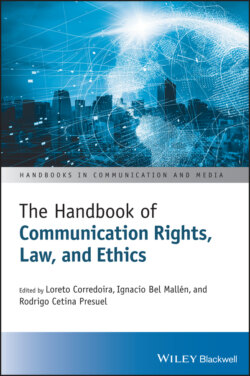Читать книгу The Handbook of Communication Rights, Law, and Ethics - Группа авторов - Страница 29
A Conclusion and a Proposal: Cosmopolitan Dignity
ОглавлениеOf all the human groups who have persistently suffered discrimination since the earliest times, one of the most affected has been foreigners. Over the centuries, law and civilization have made great strides of progress for those living within their own frontiers; but very often, those who were born outside those frontiers were, all too often, considered barbarians or savages and received the treatment accorded to slaves, an intermediate status between that of a human being and an animal. In this respect too, perspectives have evolved drastically in our time. Over the past few years, many voices have been raised to condemn the restrictive policies that Western governments have applied to migrants from other parts of the planet, who flee from war or poverty. They are indignant at the closure of frontiers or the expulsion of migrants, which they consider to be contrary to elementary humanitarian principles. The fact that their condemnation and anger are, in many cases, fully justified should not prevent us from seeing the unusual novelty that one and the other imply in strictly comparative terms: they both presuppose the tacit recognition, unprecedented in history, of the full dignity of all men and women without distinction as human beings, irrespective of whether they were born on one side of the border or the other.
The Spanish poet Antonio Machado formulates the original intuition with admirable precision when his character Juan de Mairena says: “No one is more than anyone else” (Machado 1986), which is same as saying that “however much a man is worth, there is nothing greater than his worth as a man.” The statement that “however much a man or a woman is worth, he or she has no greater worth than that of being a man or a woman” is the basis for the categorical statement I made earlier, that dignity is “unique, universal, anonymous, and abstract.” In effect, if there is no greater dignity than that of being a man or a woman, then all the other attributes (birth, sex, fatherland, religion, culture, race) on which a wide variety of ancient dignities were based in the past become mere accidents with no moral relevance and simply fade away. The difference between the president of the most powerful nation in the world and a homeless person, a migrant who swims across the sea to reach the promised land, or a person in prison for serious crimes is accidental, irrelevant, because there is nothing greater than common dignity. Though the variety of possible circumstances is humanly enriching, all individuals belong equally to the common lot of mortals.
It is often repeated that death is the great equalizer; but before death arrives, in our lifetime, we have all been made equal by our common dignity of origin.
